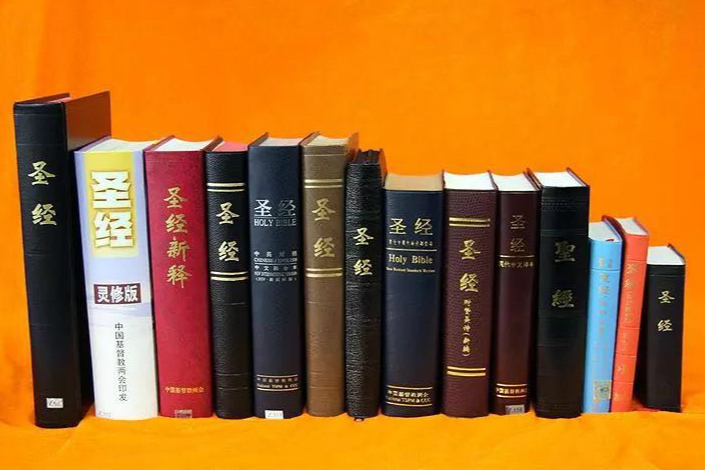The number of Chinese Bible translations continues to grow. Besides the traditional Chinese Union Version (CUV, also called the "Heheben"), we now have the Chinese New Version (CNV), the Chinese King James Version (CKJV), the Chinese Contemporary Bible (CCB), the Chinese Standard Bible (CSB), and more. In addition, digital devices are replacing traditional printed books. Young people tend to use Bible apps to read and study the Bible, whether during worship services or in daily life.
Pastor Jin, who has served a church in southern China for many years, feels that the CUV should be used as the source text and other Chinese Bible translations as supplements. While other versions can still be used for reference, Pastor Jin believes that the CUV, which is more than 100 years old, can be considered the best of all Chinese Bible translations.
In regards to the importance of the CUV, Pastor Jin explains that it is not because of his long-term use or being traditional and old-fashioned, but because of the public interest.
Pastor Jin points out that Chinese believers can only read the Chinese Bible without understanding Hebrew, Greek, or mastering English.
Among all the Chinese Bible translations, he believes the CUV should be used as the primary source, "The CUV did not come easily. Through the long prayers and hard work of 72 Western missionaries, it was finally published in 1919. At first, it was called the Mandarin Union Version instead of the CUV. To this day, no other Chinese Bible translation has ever paid as much as the CUV. So its translation and publication were under the special guidance and protection of the Lord."
Some people think that since the CUV was translated more than a century ago, there would be errors or confusion. Pastor Jin knows that there are pastors who prefer to use other translations in their sermons, such as the CNV.
In addition, some in the academic and theological fields state that there are still mistranslations in the CUV. For example, there is not the word "heaven" in the original text of the Bible, but only the phrase "kingdom of God." Early Chinese Bible translators translated God as "Shangdi" (the "Highest Deity"), not to be confused with "Yu Huang Dadi" (the "Jade Emperor") in Chinese Taoist mythology. Therefore, scholars feel the need to read the Bible either in its original Hebrew text or in its Latin and Greek translations. For most Chinese pastors and believers, however, this is beyond their understanding.
In this regard, Jin believes that while these people focus on the authenticity of the Biblical text, most pastors and believers are just concerned about the Bible itself, "As Christians, it is the Bible that we believe in. Both ‘Heaven’ and the ‘Kingdom of God’ are the immovable kingdoms that Jesus Christ promised would come; Jehovah, the Lord, ‘Shen,’ and ‘Lao Tianye’ (also known as ‘God of the Sky’) are all names for the one true God of the Scriptures, our Father in Heaven."
He points out that it is normal for biblical scholars to raise questions about the Bible during academic research, including questions about its translation. But for the pastors and the believers, the Bible means their faith.
Pastor Jin advises using the CUV for sermons and power points, while other translations are simply used as references, for example, to quote in text or verbally when necessary to explain a particular passage.
- Translated by Joyce Leung












